
Contact Us
Get in touch with us using the form or details below. We look forward to hearing from you!
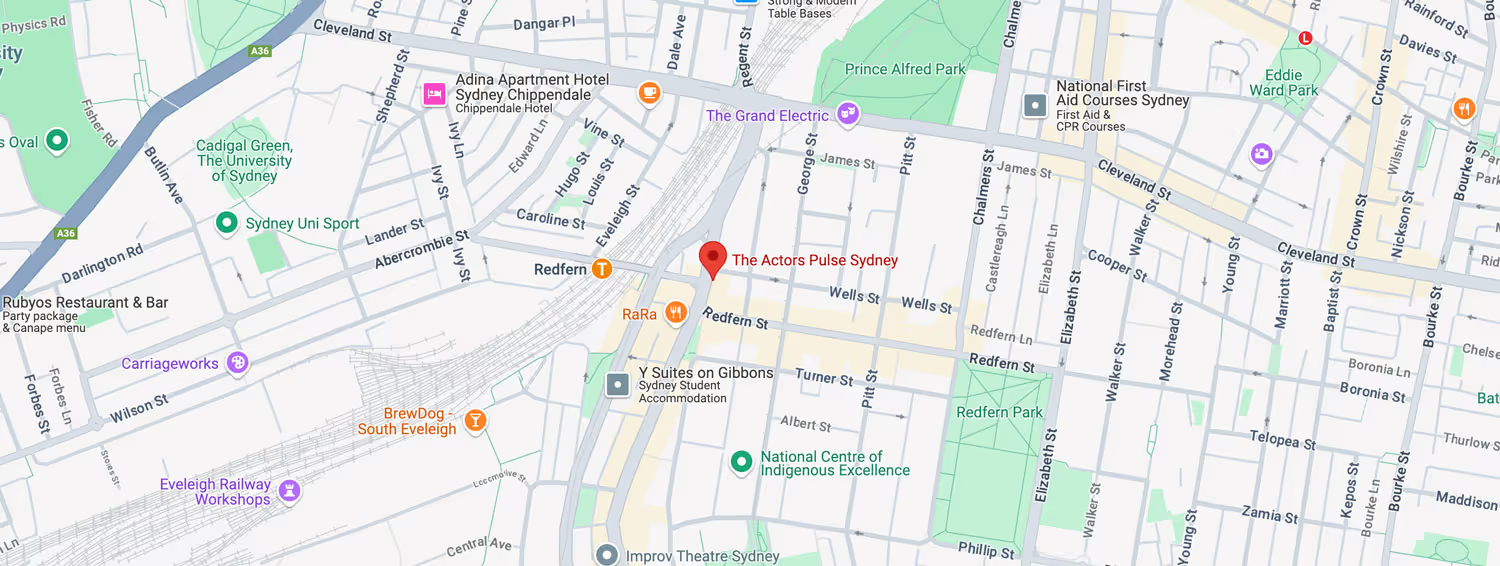
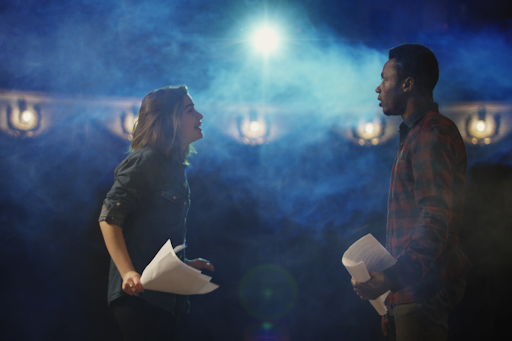
There is a difference between screen acting techniques and effective acting on stage
Have you ever watched a recording of a play? Something is always amiss. There’s an energy to the live performance of a theatre production that is never quite captured on the screen. Why is that?
In part, it is because acting techniques for the stage are quite different from the acting techniques required of a screen actor. Gestures and vocal performances that are utterly captivating in a theatre can suddenly become excessive and hammy on the screen.
Screen acting and stage acting are quite different disciplines, but with the right training, you can greatly improve your ability to perform effectively on TV and in the movies, and also in the theatre.
In this guide, we’ll look at how screen and stage acting differ from one another and where to seek help with developing your technique for either.
Screen acting techniques were, by necessity, developed much later than stage acting techniques. For those looking to do a bit of research, if you watch early cinema, you can see that they’re still using outdated stage techniques. Only later, with the introduction of the talkies, did a separate assortment of skills and acting techniques come about for the screen.
There are several reasons for different techniques being effective. Some are to do with the visual way that the different mediums are experienced, and some are more to do with audio and voice.
Tony Barr said that the difference between stage and film acting is, “the distance of communication.” On stage, for an actor to be effective, he or she must be heard and felt. One must affect in order to project so that even the little old lady way up in the cheap seats can understand what is being said on stage.
This doesn’t mean that the actor has to shout and scream every line, but it does mean that there’s a connection between the actor and the audience using sounds and behaviours.
On the screen, on the other hand, modern-day microphones can pick up even the quietest actor. One can whisper — even less than a whisper — and still be perfectly understandable to the audience. This opens up a world of new choices for the screen actor to make use of.
The perspective of the audience is different for both the stage and the screen. This is one of the biggest differences when comparing stage acting vs film acting.
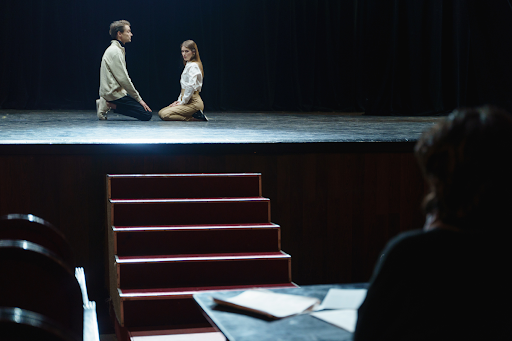
For a theatre performance, one is being watched from many different points of view. Indeed, when one performs in a round theatre, one can be seen from as many as three hundred and sixty degrees!
Typically, in stage acting, you’re performing to be seen in the distance. Overly subtle gestures can become lost and ineffective if the audience can’t see what is going on. On-screen, however, things are entirely different.
On-screen, the audience might be looking at your performance from any distance, depending on what it is that the director wants. However, you frequently perform at an angle that never takes place in a live performance, the close-up. With a close-up, it is as though the audience is mere centimetres away from your face.
Every tiny movement and thought, even ones you’re not conscious of, is captured, and magnified many times, onto the enormous silver screen.
Acting for a close-up opens many avenues for subtle and effective actions that simply would not work on the stage. Conversely, stage acting techniques can look very silly with a close-up; wild gestures, even small movements of the head, might cause you to go out of shot, and if the audience can’t see it then it’s not especially useful for your performance.
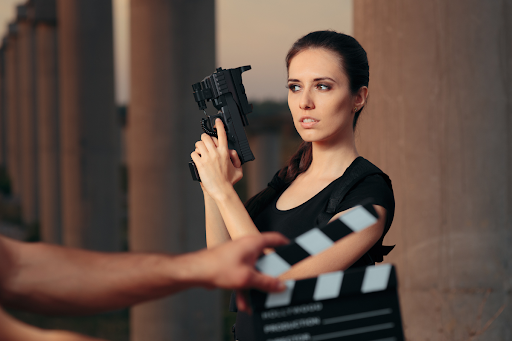
Some of the world’s best screen actors have abhorred performing on stage. They find the repetition of the show night after night difficult. Thankfully, there are acting techniques to help stage actors keep their performances alive.
With the Meisner Technique, the focus is placed on the other actors one is sharing the stage with, rather than what the self is doing. This externality, and the changing energy of each night, help to keep scenes vibrant and new.
There are things an actor must be conscious about while filming for the screen, rather than performing live. For example, with a recorded performance, the actor must be versatile and prepared to act through the same scene in a variety of different ways.
Keeping a performance fresh can be difficult in a recording, especially if you need to shoot take after take of the same scene over and over again, perhaps in uncomfortable costumes or makeup, under bright lights.
Then, there is the difficulty of getting into character; films are seldom shot with scenes in sequence, and the screen actor must understand where in the story the scene takes place. This tends not to be such an issue for the stage actor, where scenes are usually performed in order (unless it’s a particularly Avant-garde performance).
When it comes to comparing acting on-screen vs stage acting, it would be wrong to say that the two disciplines don’t have anything in common. There are of course some similarities between stage and screen acting.
Often, with some training, thoughtfulness, and practice, a stage actor will be able to successfully transition to screen acting and vice versa.
There are countless examples of this, actors who triumph on both stage and screen.
The life of an actor is, almost by definition, fluid. No matter how successful or famous an actor becomes, they still audition for roles, hoping to land the part. Things are, of course, much harder when you are just starting. Successful auditions can be few and far between, and you’ve got to go and chase opportunities.
If you only specialise in stage or screen acting, you’re doing yourself a disservice. By only focusing on one path and ignoring the other, you’re ruling out roles that you could have been great for. Develop the skills for both stage and screen acting, and you’ll be able to audition for all types of roles.
Whether for stage or screen, at The Actors Pulse, we can provide lessons in the Meisner Technique to bring your acting to another level. Find out more about the acting classes we offer.
Stage acting involves a live performance in front of an audience in a theatre setting. In stage acting facial expressions and gestures are more exaggerated. This helps to ensure audiences can see what is happening and understand these elements of a performance.
Voice projection is also important in stage acting as is line memorisation. Stage actors do not get do-overs, they are expected to deliver their lines accurately and at the perfect volume for their audience, often over hours of live performance. Stage acting requires a significant amount of preparation for performance due to these factors.
Film acting is done on a secured set or film lot with no live audience and attended by a team made up of directors, producers, make-up artists and more. Small sections of the script are filmed at a time with the chance to redo parts that are not delivered to the director’s expectations.
In film acting, there is less need for physicality than in stage acting as over-the-top gestures are not needed as camera angles and zoom lenses capture it all. You are also not required to memorise your entire script for delivery in one go. This can make the preparation for a film role quite different to that of a stage actor.
No, there is no rule regarding whether you need training or experience in both stage and film acting. However, having experience in stage acting is considered to be advantageous to the profession of your career.
This is due to the level of preparation and skill necessary to deliver a stage performance. Stage actors:
Despite theatre acting being a valuable skill to have, it does not necessarily make you a better actor than a film actor. All actors benefit from ongoing training in acting whether this is through theatre or time spent with an acting coach.
Ultimately your skill as an actor is what makes you great and whether you have experience in theatre to build on these skills or not you can still become a leading actor.
Arguably stage acting is more challenging than screen acting due to the need to memorise all your lines and deliver them in one go without mistakes or a break. However, film acting has its own challenges.
Long hours on set – often in excess of 15 hours, repeated delivery of the same scenes over and over as well as dealing with disordered sequences and the constant stopping and starting of filming.

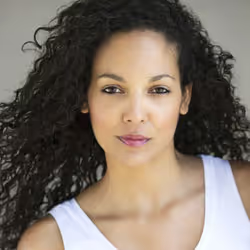



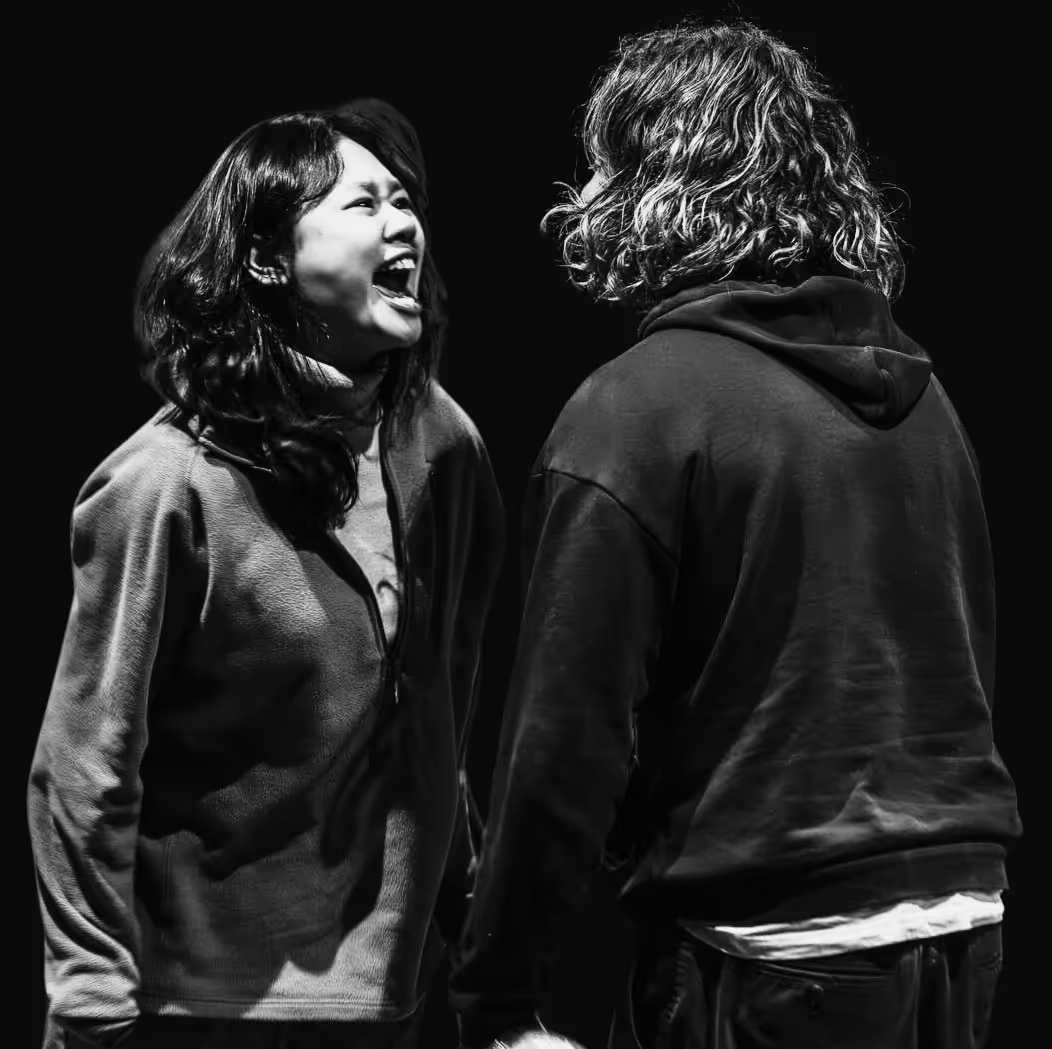



Get in touch with us using the form or details below. We look forward to hearing from you!
